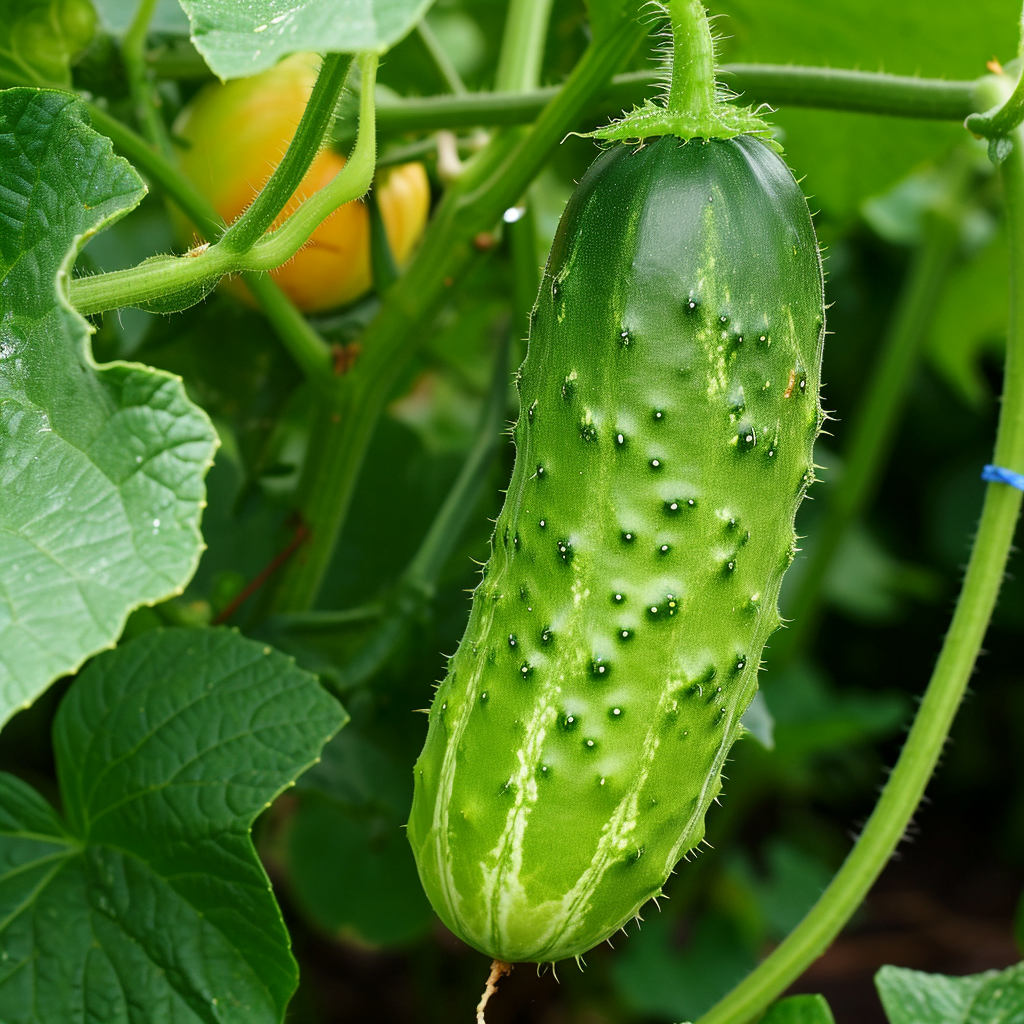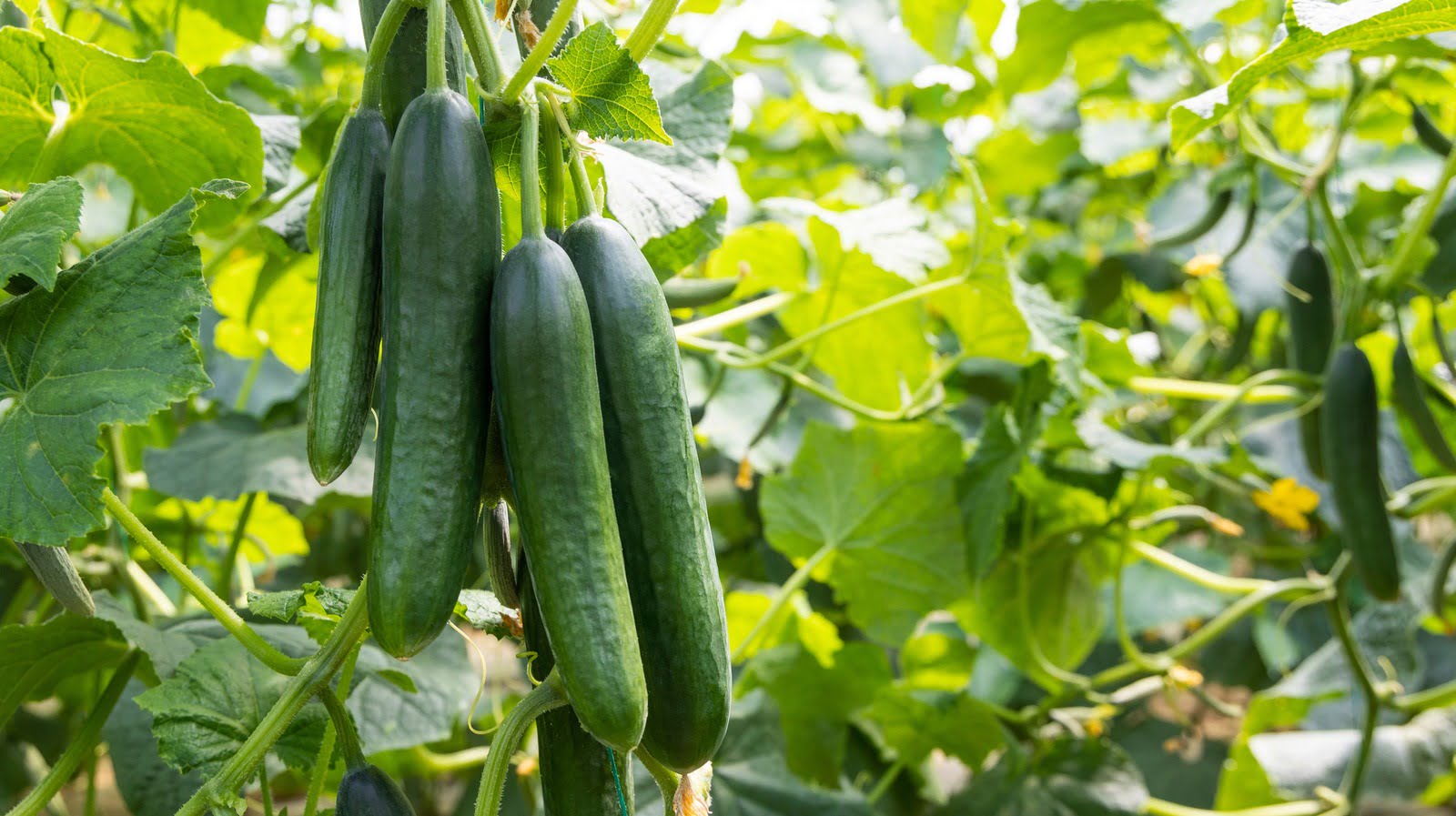Have you ever wondered why your cucumbers are growing round instead of long and slender? It can be quite perplexing, especially when you were expecting to harvest those beautifully elongated cucumbers for fresh salads and pickling. In this article as the title suggest “why are my cucumbers growing round?”, we will explore the possible reasons behind this mysterious phenomenon and provide you with some insights on how to encourage your cucumbers to grow in their usual, more characteristic shape. So, if you’re curious about the unusual roundness of your cucumbers, keep reading to unravel the mystery!
Possible Causes of Round Cucumbers
Have you ever found yourself wondering why your cucumbers are growing round instead of the usual long and slender shape? Well, there are several possible causes for this phenomenon. In this article, we’ll explore the genetic and environmental factors, pollination issues, nutrient deficiencies, lack of water, and disease or pest infestation that can all contribute to the round shape of your cucumbers. By understanding these causes and implementing appropriate prevention and solutions, you can ensure that your cucumbers grow beautifully and traditionally.
Genetic Factors
When it comes to the shape of cucumbers, genetic factors play a significant role. The variety of cucumber you choose and the quality of the seeds can greatly influence the outcome of their shape. Certain cucumber varieties are naturally round, like the lemon cucumber, and are intentionally bred for their unique shape. If you’re aiming for long cucumbers, make sure to select varieties that are known for their elongated shape. Additionally, using high-quality seeds that have been properly stored can help ensure that your cucumbers grow as intended.
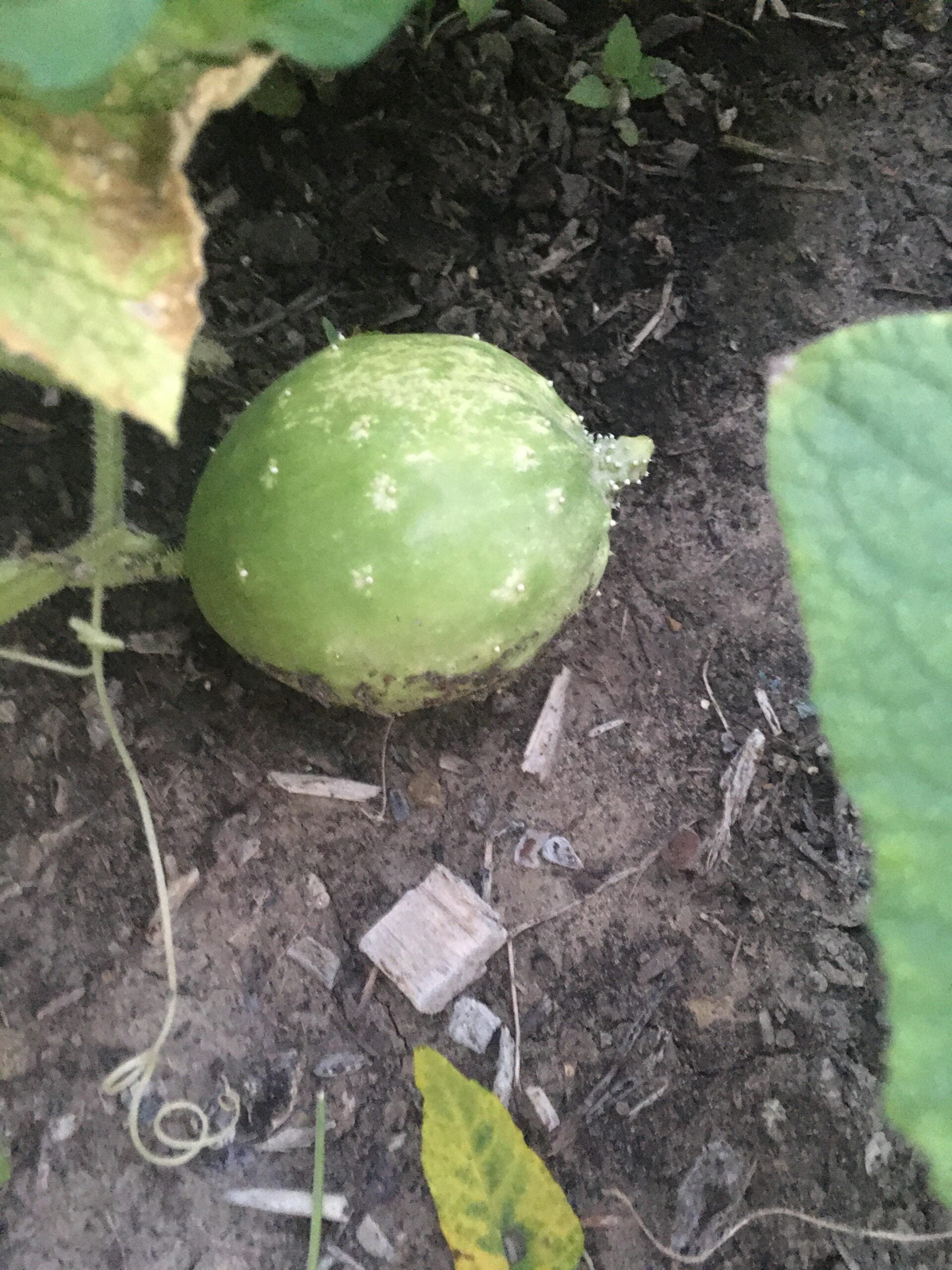
Environmental Factors
The environment in which cucumbers grow can also impact their shape. Temperature, light, and humidity are crucial factors that can affect the growth and development of cucumbers. Cucumbers prefer warm temperatures between 70-85°F (21-29°C) during the day and slightly cooler temperatures at night. When exposed to extreme temperatures, especially low temperatures, cucumbers may develop irregular shapes, including roundness. Similarly, insufficient light or improper exposure to light can disrupt the growth process, leading to misshapen cucumbers. Lastly, cucumbers thrive in moderate humidity levels, so excessively dry or humid conditions can result in irregular shapes.
Pollination Issues
For proper cucumber development, pollination is crucial. Cucumbers have both male and female flowers, and they rely on pollinators, such as bees, for successful pollination. Lack of pollinators in your garden or inadequate pollination can lead to misshapen cucumbers. Since cucumber fruit grows from the female flower, poor pollination may result in incomplete fertilization, causing the fruit to develop abnormally. To encourage proper pollination, you can attract pollinators to your garden by planting flowers that attract bees and other beneficial insects. Additionally, providing a favorable environment for pollinators, such as avoiding the use of pesticides toxic to bees, can further enhance pollination rates.
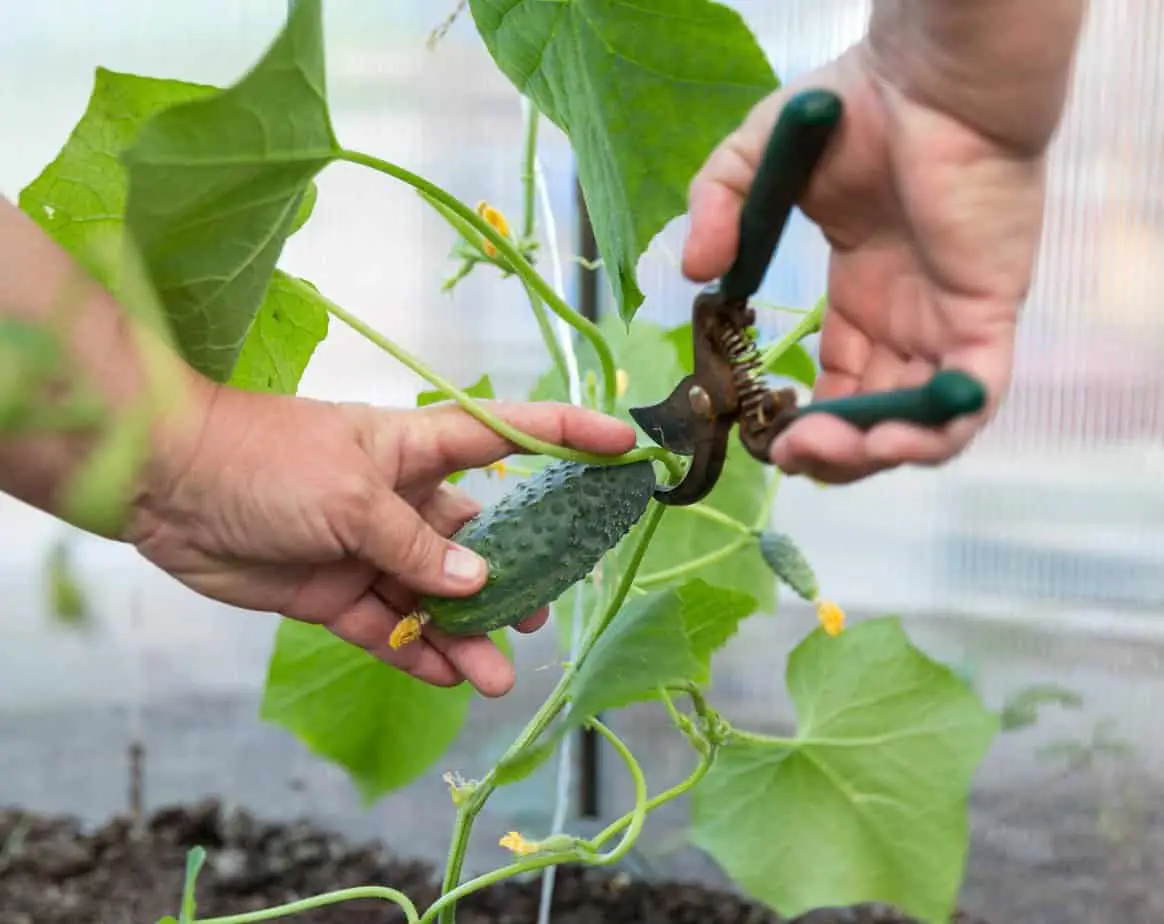
Nutrient Deficiencies
Maintaining proper nutrient levels is essential for the healthy growth of cucumbers. Various nutrient deficiencies can affect cucumber shape, including nitrogen, potassium, phosphorus, and calcium deficiencies. Nitrogen is vital for overall plant growth, and its deficiency can cause stunted growth and misshapen cucumbers. Likewise, inadequate potassium and phosphorus levels can lead to irregular fruit development. Calcium deficiency, commonly known as blossom end rot, can result in cucumbers with sunken, misshapen ends. Ensuring that your soil has sufficient nutrients and periodically fertilizing your cucumber plants can help prevent these deficiencies.
Lack of Water
Water is an essential component for proper cucumber growth, and insufficient water supply can lead to round cucumbers. Inconsistent watering or insufficient irrigation can disrupt cucumber development, causing deformities in their shape. Cucumbers need regular and deep watering, especially during hot and dry periods. It is crucial to keep the soil consistently moist without over-saturating the roots. Regularly monitor the soil moisture levels and adjust your watering practices accordingly to maintain optimal growing conditions.
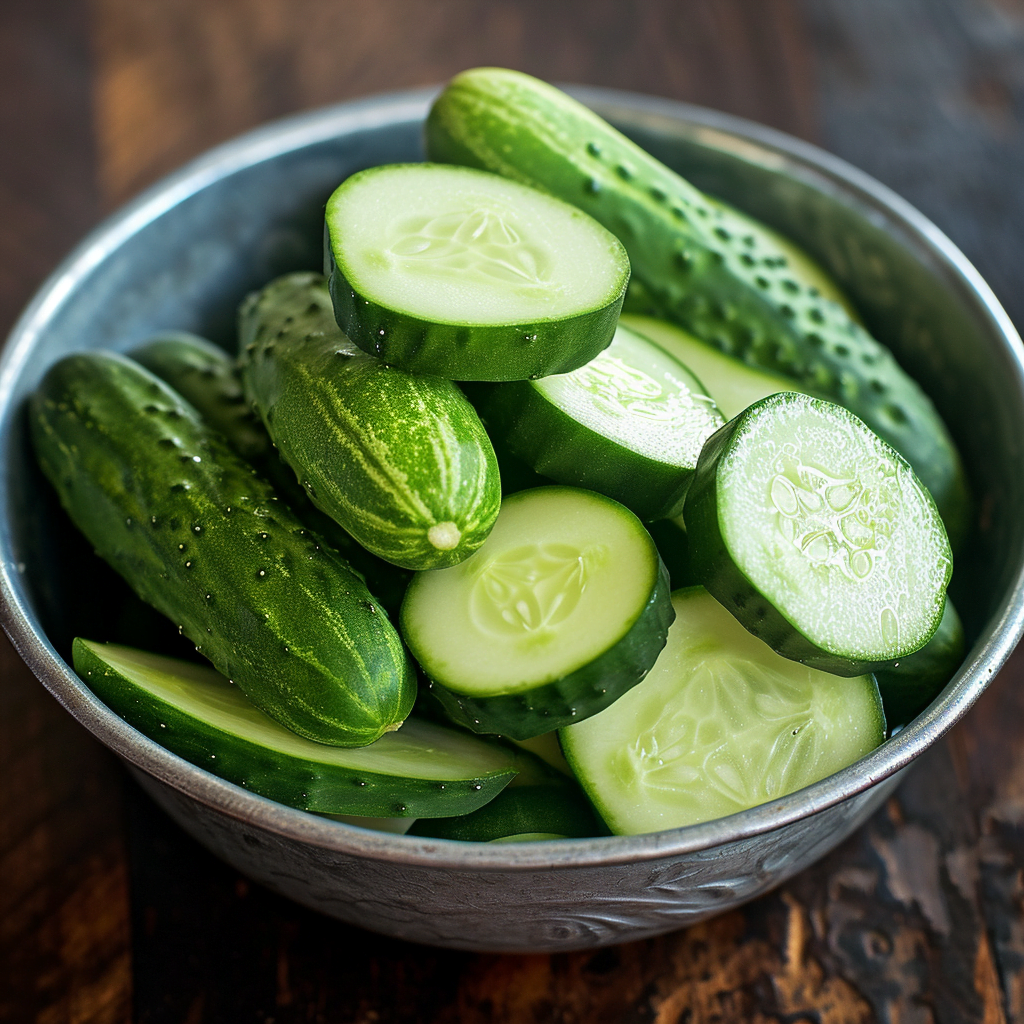
Disease or Pest Infestation
Diseases and pests can wreak havoc on cucumber plants, impacting their shape and overall health. Fungal, bacterial, and viral diseases can all contribute to misshapen cucumbers. Fungal diseases, such as powdery mildew or downy mildew, can cause distortion and deformities in the fruit. Bacterial infections, like angular leaf spot, can result in irregular fruit shapes. Viral diseases, such as cucumber mosaic virus, can affect cucumber growth and lead to misshapen fruits. Additionally, certain insect pests, like cucumber beetles or aphids, can damage the plant tissue and disrupt the growth process, resulting in deformed cucumbers.
Prevention and Solutions
To prevent and address the issue of round cucumbers, several measures can be taken:
- Choose appropriate cucumber varieties: Select varieties known for their long and slender shape if you prefer traditionally shaped cucumbers.
- Source high-quality seeds: Ensure that your seeds are of good quality and are stored properly to increase the likelihood of desired cucumber shape.
- Maintain optimal environmental conditions: Provide the right temperature, lighting, and humidity levels for your cucumber plants to thrive.
- Ensure sufficient pollination: Attract pollinators to your garden and create a pollinator-friendly environment to increase the chances of successful pollination.
- Address nutrient deficiencies: Regularly assess the nutrient levels in your soil and address any deficiencies through appropriate fertilization.
- Implement adequate watering practices: Consistently and deeply water your cucumber plants, avoiding fluctuations in moisture levels.
- Manage and prevent diseases: Practice good garden hygiene, such as removing and disposing of infected plant material, and consider using preventative treatments if necessary.
- Control insect pests: Monitor your cucumber plants for signs of pest infestation and employ appropriate control methods, such as biological controls or organic insecticides, if needed.
By following these prevention and solution techniques, you can minimize the occurrence of round cucumbers and enjoy a bountiful harvest of traditionally shaped cucumbers.
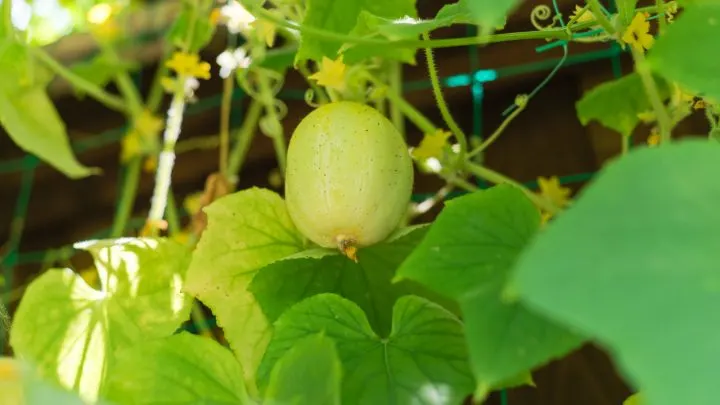
Conclusion
In conclusion, round cucumbers can be caused by various factors, including genetic factors, environmental conditions, pollination issues, nutrient deficiencies, lack of water, and diseases or pest infestations. Understanding these causes allows you to take appropriate measures to prevent and address the issue. By selecting suitable cucumber varieties, ensuring high-quality seeds, maintaining optimal environmental conditions, promoting proper pollination, addressing nutrient deficiencies, implementing adequate watering practices, managing diseases, and controlling insect pests, you can increase the likelihood of growing long, slender cucumbers. With a little knowledge and proactive care, you’ll be on your way to harvesting beautifully shaped cucumbers straight from your garden. Happy growing!
